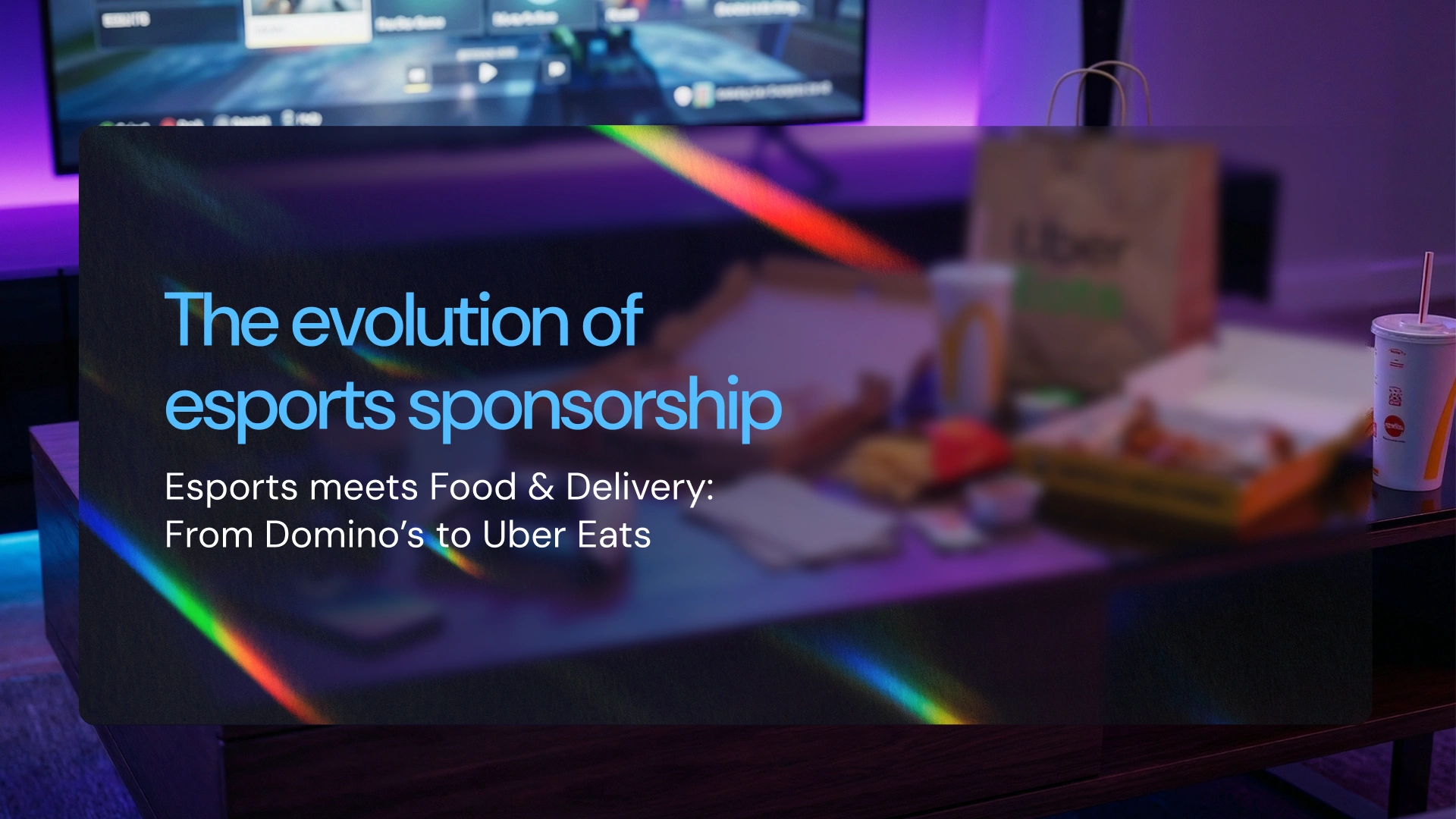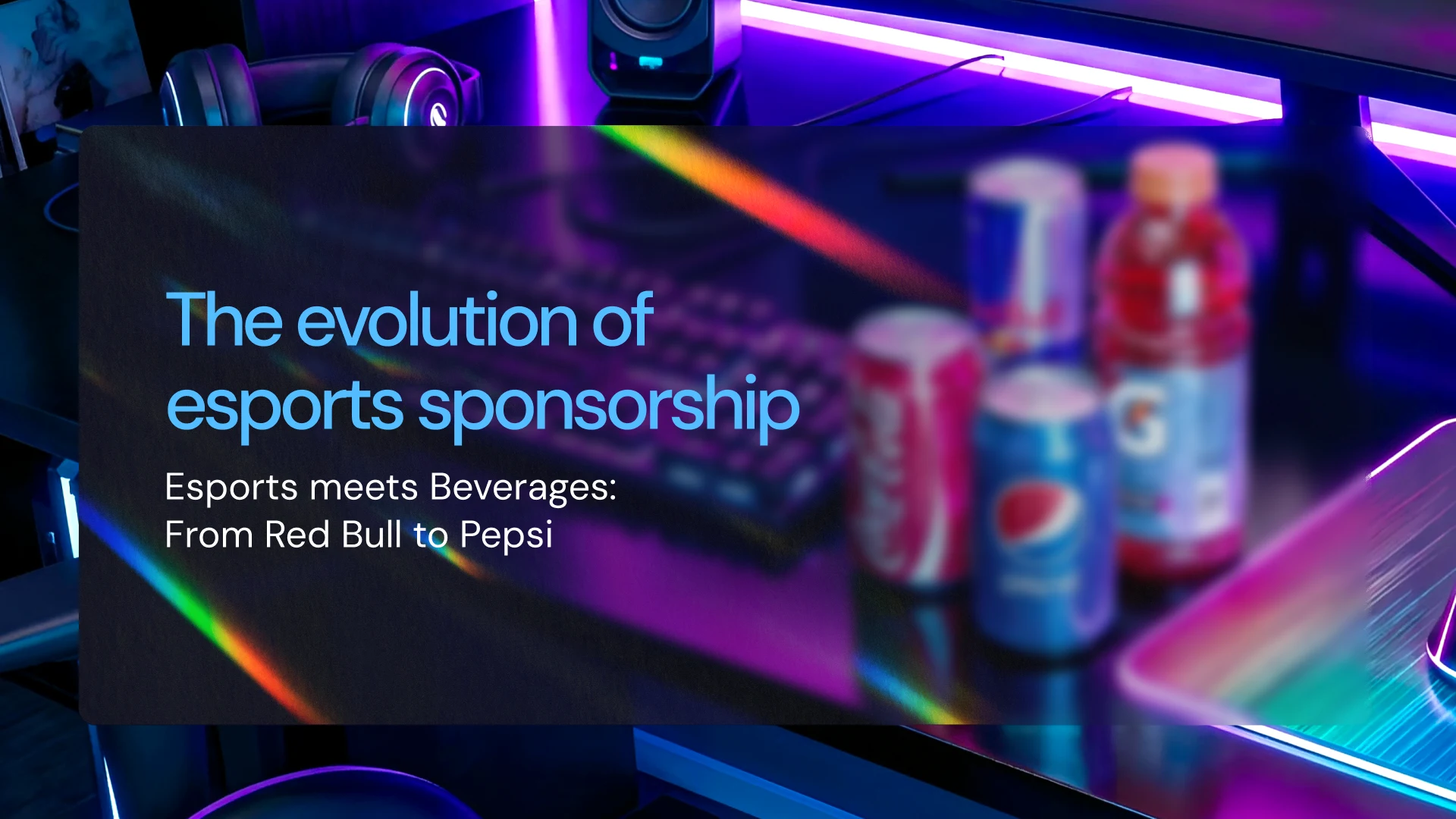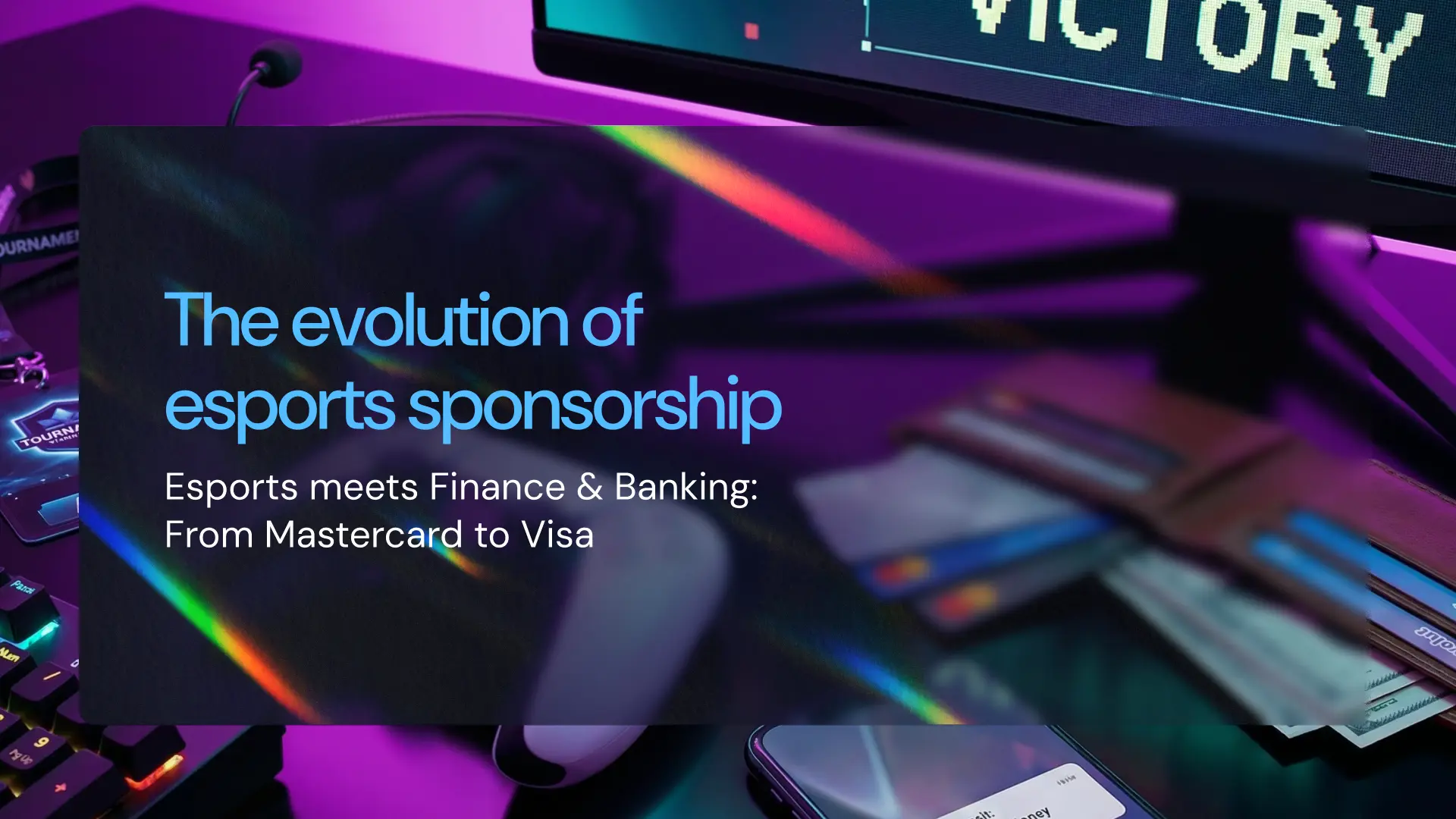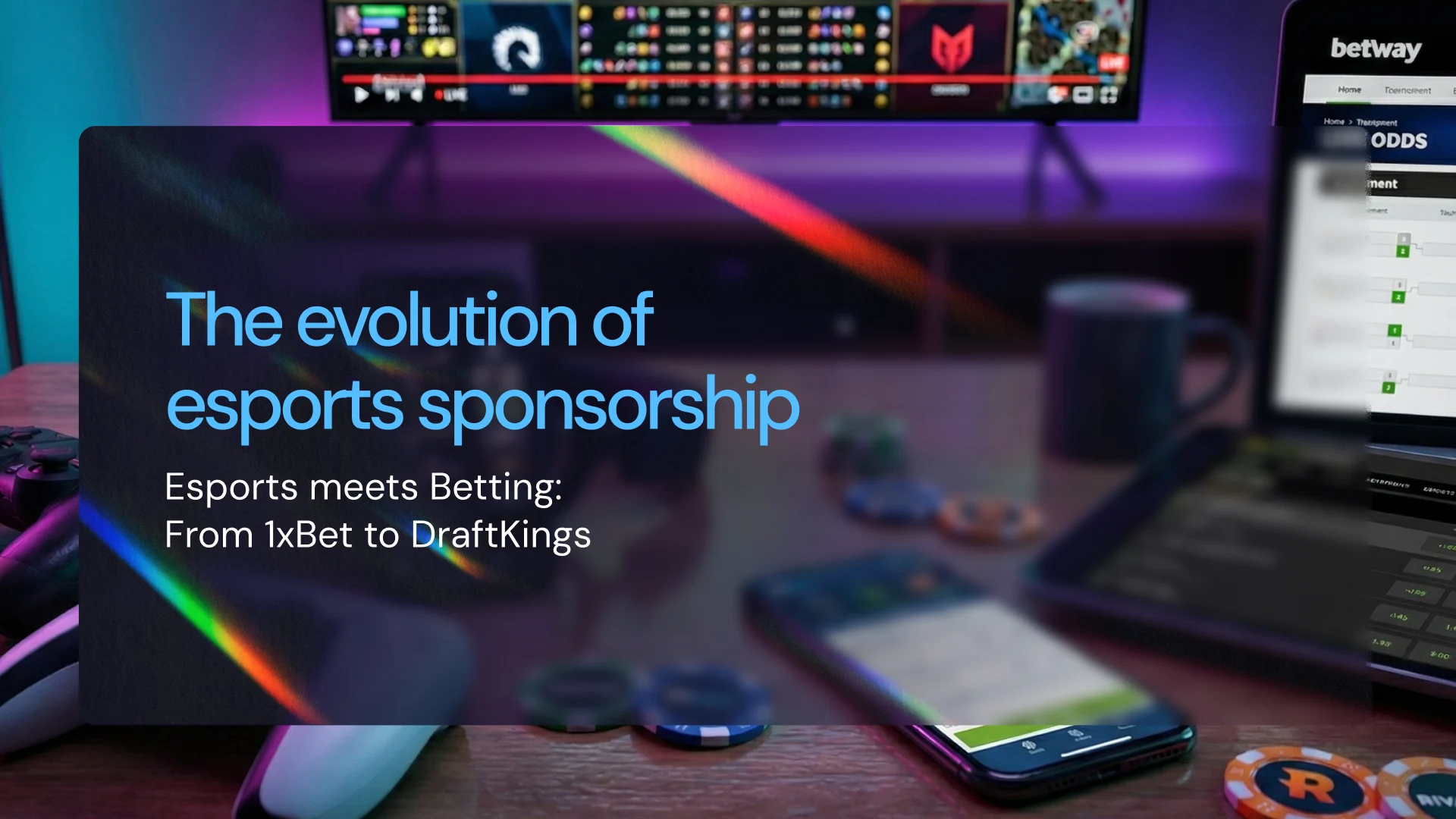Fast food brands didn't wait for esports to mature before jumping in. Between 2017 and 2026, over 15 major fast food and delivery brands entered competitive gaming, testing markets, backing teams, and building campaigns. Some came in once and left. Others kept coming back, refining their approach with each new partnership.
The brands still active in 2025-2026 moved beyond simple logo placements. They integrated into gaming culture through in-game rewards, fan-voted menu items, charity campaigns, and grassroots talent development. The ones that disappeared? They either found better channels or realised esports wasn't the right fit.
This updated timeline shows who entered, what they did, and which brands made esports a sustained platform rather than a one-off activation.
The Need for Speed: Why Gamers Prefer Fast Food
Fast food and gaming go together because both prioritise speed and convenience. Here's why the pairing makes sense:
- Minimal disruption – Quick, ready-to-eat meals don't require leaving the setup or interrupting gameplay
- Late-night availability – Many gamers play well past regular dining hours, and fast food chains stay open
- Special offers and incentives – Companies frequently provide gamers with meal packages and in-game rewards tied to purchases
- Accessibility and comfort – These meals have become a staple during competitive matches and gaming marathons because they're familiar and easy to grab
As esports and gaming culture continue to grow, the demand for convenient food options will only increase.
Major (Fast) Food and Delivery Brand Sponsorship Moves
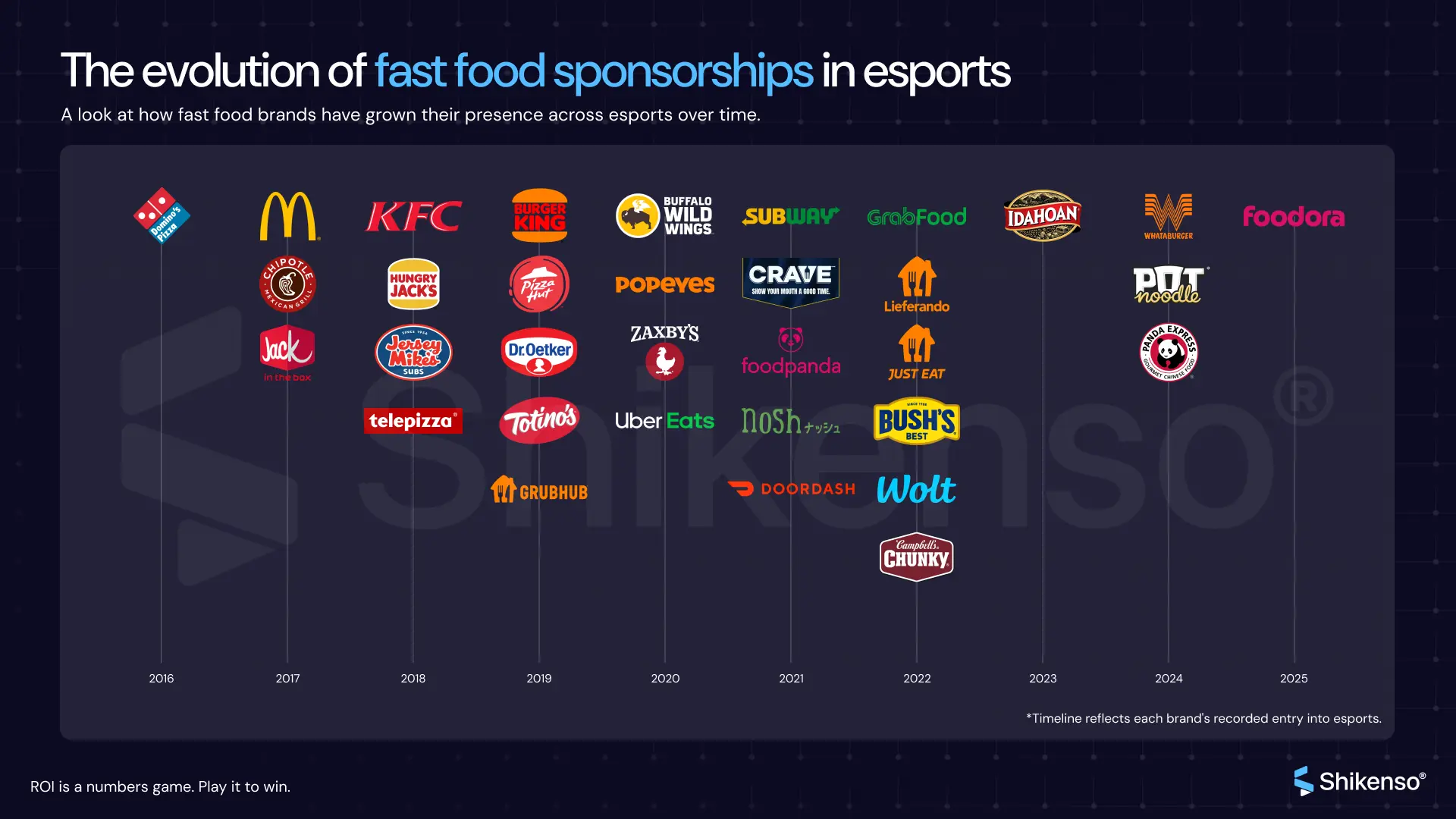

McDonald's x StarCraft 2 World Championship Series (2017)
McDonald's became a partner of StarCraft 2 World Championship Series in 2017. Even though the sponsorship was Australia-only, the partnership included naming rights, on-ground activations, content integration, and branding across the event.
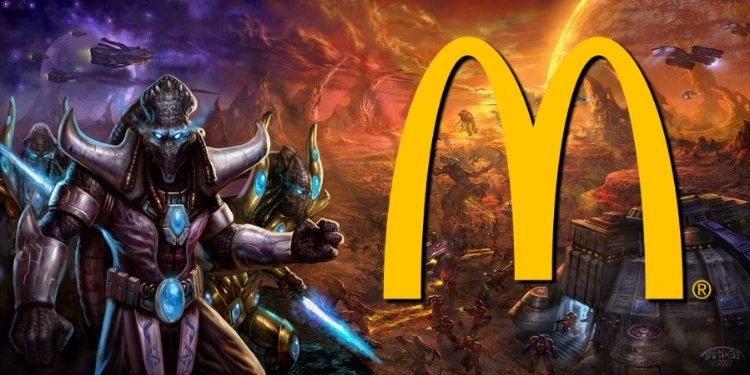
Grubhub x ESL Collegiate (2019)
In 2019, Grubhub became the official food delivery partner of ESL Collegiate allowing fans to vote on which food on-stream talent have to eat during a 'Cast & Chat Chowdown' segment.
Subway x Guild Esports (2021)
In 2021, Guild Esports announced a 2-year sponsorship deal with Subway. The multi-million-pound agreement covered 55 EMEA markets. Subway became Guild's Official Quick-Service Restaurant Partner as well as their Official Academy Partner, focusing on youth development through the Future Talent Series.
Chipotle x Tekken 8 (2024)
Chipotle kicked off 2024 with a massive partnership with Tekken 8, marking the brand's aggressive push into the fighting game community. Players could earn 500 Tekken Coins by ordering through the Chipotle app using promo code "EWGF623" – a direct nod to the game's iconic Electric Wind God Fist move.
But Chipotle didn't stop there. They let fans vote on ingredients for the "Tekken 8 Battle Bowl" menu item, racking up 38,000 votes. The brand also launched the Chipotle Challenger Series on PlayStation Tournaments, the first-ever sponsor-branded tournament on the platform, with a $20,000 prize pool. Winners earned free Chipotle for a year and a trip to Evo 2024 in Las Vegas.
"The amazing reception we received from the Fighting Game Community in 2023, notably Evo attendees cheering for our ads when they aired during the competition, has inspired us to double down on our investment in FGC," said Chris Brandt, Chief Brand Officer at Chipotle.
Panda Express x NRG (2024)
Panda Express made its esports debut in March 2024 through a partnership with NRG focused on Rocket League. The brand integrated into NRG's "Mission Control" broadcast show with the "Panda Express Pre Game" segment, where commentators analysed RLCS matches while eating Panda Express meals on air.
The partnership extended to TikTok content featuring NRG's Rocket League roster and LA-based Castle Crew content creators. With NRG's 3.3 million TikTok followers, the "Wok & Roll Giveaway" during broadcasts offered fans gift cards and exclusive content. It was Panda Express' first step into competitive gaming, focusing on the social nature of both dining and esports.
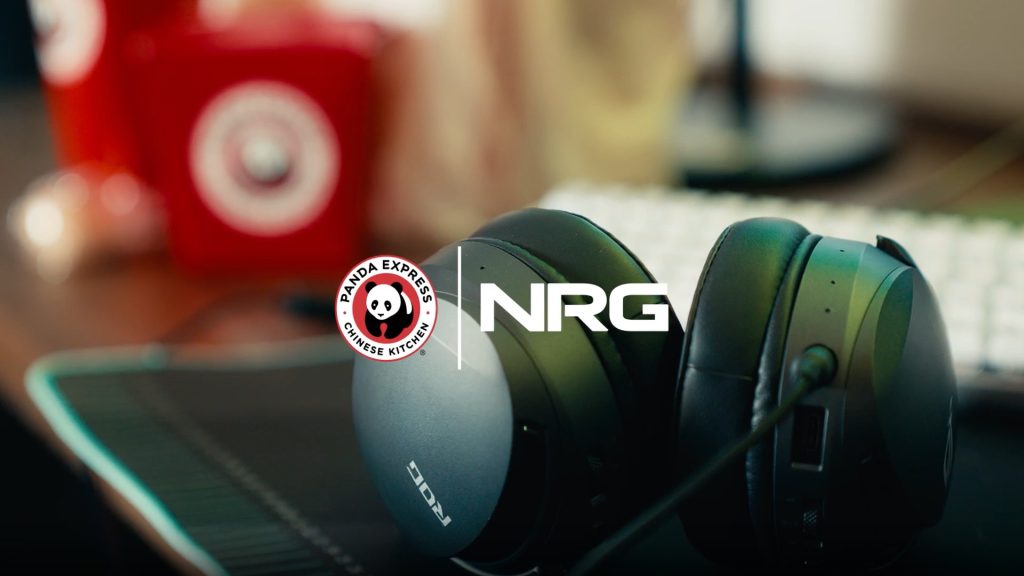
Popeyes x Chicago Huntsmen (2020)
Popeyes entered esports in 2020 by partnering with the Chicago Huntsmen (NRG Esports' Call of Duty League team). The partnership brought the Louisiana-style fried chicken brand into competitive Call of Duty, targeting the CDL's passionate North American fanbase during a period of rapid growth for franchise-based esports leagues.
DoorDash x LCO (2021)
In 2021, DoorDash became the official food delivery partner of the LCO (League of Legends Circuit Oceania), covering Australia and New Zealand. This regional partnership aligned DoorDash's delivery service with one of Oceania's premier competitive League of Legends circuits, providing localised brand presence during broadcasts and events.
Jersey Mike's x TSM (2023)
Jersey Mike's Subs partnered with TSM (TeamSoloMid) in 2023, marking the sandwich chain's entry into esports. The multi-title sponsorship covered TSM's competitive rosters across multiple games, bringing a fresh QSR brand into North American esports during a period when traditional fast food sponsors were expanding their portfolios.
Pot Noodle x BLAST & Fnatic (2024)
Pot Noodle (Unilever) made a bold entrance into Counter-Strike 2 esports in 2024 by sponsoring the BLAST Premier Spring Final and partnering with Fnatic. The instant noodle brand's UK-focused activation brought a different type of convenience food into the esports sponsorship mix, targeting CS2's European audience with a product that resonates with gaming culture's late-night sessions.
Whataburger x Breakfast in Bedwars (2024)
Texas-based burger chain Whataburger hosted the "Breakfast in Bedwars" Fortnite Tournament in 2024, creating a brand-hosted competitive event. The tournament showcased how regional QSR chains could activate in esports through custom-branded competitions, connecting Whataburger's breakfast menu with Fortnite's massive North American player base.
Foodora x ENCE (2025)
In 2025, Finnish food delivery service Foodora partnered with ENCE, one of Finland's premier esports organisations. The partnership covered ENCE's Counter-Strike 2 team and multiple other rosters, bringing localised food delivery into Nordic esports. Foodora's entry demonstrated how regional delivery services could effectively activate in esports markets outside the major US/EU corridors.
McDonald's x Faker (2025)
In December 2025, T1's legendary mid-laner Faker appeared in a McDonald's Korea advertisement promoting the Lucky Burger, which returned to menus on December 26. A portion of proceeds went to Ronald McDonald House Charities Korea, supporting families with seriously ill children.
Faker's appearance in the ad, complete with the iconic "ba da ba ba ba" jingle, came shortly after T1's historic three-peat World Championship victory. The campaign generated massive interest online, with fans praising the wholesome nature of the partnership and the charitable angle. McDonald's Korea has long been an LCK sponsor, previously releasing the "LCK Legend Pack" with limited-edition player photocards.
Chipotle x 2XKO (2025)
Chipotle continued its FGC domination by becoming an official launch partner of Riot Games' 2XKO in October 2025. Players who ordered through the Chipotle app using promo code "LETSDUO" received the "Chipotle Challenger Bundle" – in-game avatar gear including a hoodie, sweatpants, sneakers, hat, sling backpack, and a cheeky "Bur-Rito Pls" sticker (a riff on the "Rito Pls" meme).
At Evo Las Vegas 2025, Chipotle hosted hourly tournaments on custom-designed Chipotle x 2XKO arcade cabinets in their Community Lounge, with live Q&As featuring the dev team. The partnership is set to expand in 2026 with additional exclusives announced.
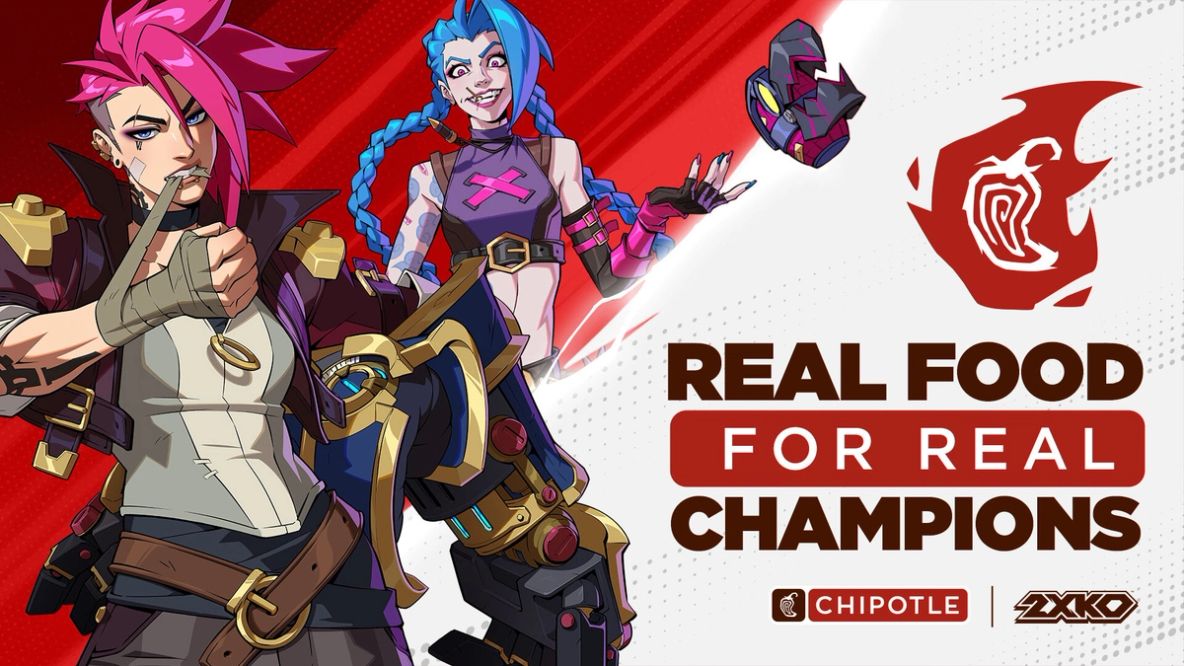
Burger King x Saudi Esports Federation (2025)
In October 2025, Burger King (operated by Olayan Food Services in Saudi Arabia) became the presenting partner of the Saudi Esports Federation's 2025 Universities eLeague and Schools eLeague. The grassroots-focused partnership targets talent development across 2,200+ schools, 38 universities, and 1.2 million players.
"Their commitment to our youth-focused initiatives aligns with our goal to empower students and provide them with meaningful experiences and clear pathways to succeed in the world of esports," said Rawan AlButairi, CEO of Saudi Esports Federation. Prize pools include SAR 50,000 for the Schools eLeague and SAR 250,000 for the Universities eLeague.
Brand Re-Entry Reference Table
The following table shows which fast food brands made multiple entries into esports, indicating sustained commitment rather than one-off experiments.
Fast Food's Place in Esports
Fast food and esports found each other because the fit was natural. Gamers need convenient meals during long sessions, brands need access to Gen Z audiences, and competitive gaming provides global reach across dozens of markets. The brands still active in 2026 adapted their approach beyond logo placement, creating in-game rewards, charity campaigns, and fan-voted menu items.
The ones that exited either found better channels or couldn't justify the spend. What started as experiments in 2017 has become standard practice for major brands looking to reach gaming audiences.
Get new insights straight to your inbox
Don’t miss out on the insights that the press and media rave about!
